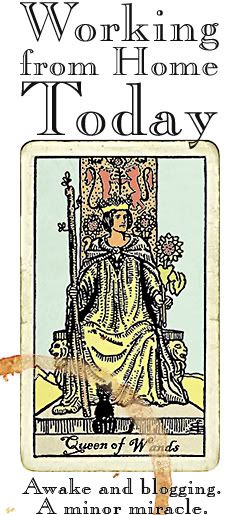Wednesday, July 11, 2007
The How To
Will you provide a Coles notes version of how to do this? We are in the same boat. Exactly how much in debt were you and exactly how much time did it take from day 1 to day finish?
--Jack
Dear Jack,
Our debt was probably the equivalent of half a year of our salaries combined. We were barely making a dent in the principle. Six months later, we are completely out of debt.
We were able to bring in a little extra income, which helped. But the biggest single factor was controlling our spending. We couldn’t have done it without a financial advisor and I just happen to work for one I consider to be the best in the country.
Here is essentially what we did:
- We collected six months worth of financial records: every line of credit, credit card, checking or savings account.
- We made a spreadsheet with categories, like Cash Withdrawal, Groceries, Restaurant, Transportation, Phone, Cable, Travel, Pets, Sports, Bank Fees, NSF fees, Interest, Insurance, Loan Payments, etc.
- We plugged in the numbers from the statements. Every single number had to have a home on the spreadsheet, right down to the $1.50 for ATM use.
- We totaled the columns. Divided it by six and we had our average monthly spending in each category. Then we threw up a little.
- We gathered the most recent copies of every one of our monthly bills.
- We researched our outstanding loan, mortgage and credit card balances, plus their interest rates.
- Took all of this information to our financial advisor.
- She took a look and showed us where we were bleeding money. She told us we were spending three times more than we made each month. She also calculated how bad it would get if we didn’t do something immediately.
- Trevor walked around looking very pale for three days.
- She came back with a budget for us broken into two main categories: fixed and variable expenses. Fixed expenses are anything you can’t change: debt repayment, mortgage payment, rent, cable bill, etc.
- For debt repayment, she gave us a repayment schedule. We set up automatic withdrawals to pay the minimum payments on all debt, but we set up significantly higher payments on the debt with the highest interest. As each debt was cleared, the money was rolled onto the next highest interest debt. And so on.
- We also set up automatic withdrawals of 30% for taxes (we’re both freelancers) and 10% for savings. In savings, 1/2 went to RRSPs, ¼ went to a mat leave fund, ¼ went to an emergency fund.
- Next came variable spending, for which she also provided a budget. Variable spending is money you take out in cash each week. It is divided into five jars:
- Entertainment,
- Gifts and Clothes,
- Food,
- Transportation,
- Misc. (dentist, household supplies, pet supplies). It was our choice how to spend it, if we wanted to move money between the jars. However, once the money for the week was gone, it was gone. No running for the debit card.
- We kept track by keeping all receipts. We revisited our spending each week before we replenished the cash. We made very difficult choices about the last $10 in the jar.
- The debt took on a snowball effect. That was fun to watch. Our savings also built quickly.
- Wash, rinse, repeat until debt completely paid off.
--Jack
- Entertainment,
- Gifts and Clothes,
- Food,
- Transportation,
- Misc. (dentist, household supplies, pet supplies). It was our choice how to spend it, if we wanted to move money between the jars. However, once the money for the week was gone, it was gone. No running for the debit card.
posted by Working From Home Today
~ permalink ~ ~ social bookmark
|
3 comments:
Jack Hilkewich ~ 9:59 AMThanks, Monica. We will give this a shot. Would you recommend a financial adviser or is that just a luxury?Amalia ~ 10:08 AMI do recommend a financial adviser, only because they're able to look at the big picture. It's something easily missed when we're in the thick of it, no matter how good you are with numbers. I can't tell you how many accountants and bookkeepers request to work with our financial guru, just to get that honest, outside perspective.~ 10:21 AMAgain, congratulations! You might want to drop this guy a line, since he recommends similar strategies on his blog. He might appreciate a real-world and independent example of some of his suggestions at work:post a comment ~ Subscribe to Post Comments [Atom] ~ main page |



